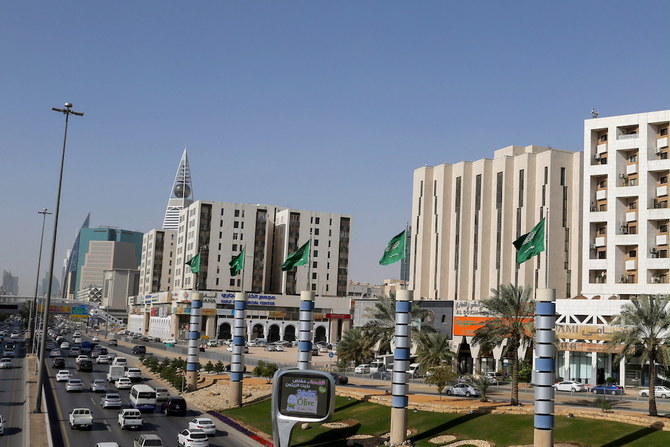
06 Aug 2024
RIYADH: Saudi Arabia’s non-oil private sector showed robust growth in July, driven by sustained demand amid heightened competitive pressures, according to an economy tracker.
The Riyadh Bank Saudi Arabia PMI survey, compiled by S&P Global, revealed that the Kingdom’s Purchasing Managers’ Index slightly softened to 54.4 in July, down from 55 in June and 56.4 in May.
S&P Global said that any PMI reading above 50 indicates growth in the non-oil sector, while readings below 50 signal contraction.
Bolstering the non-oil private sector is pivotal for Saudi Arabia as it pursues economic diversification by reducing dependence on crude revenues.
Naif Al-Ghaith, chief economist at Riyad Bank, said: “PMI managed to stay on the expansion, recording a solid 54.4, reacting to the status quo of demand and competition in the Saudi market. This figure highlights continued growth within the private sector, driven by sustained demand despite heightened competitive pressures.”
He added: “Demand has played a crucial role in driving orders, ensuring that businesses remain active and forward-looking.”
The report said that extensive market competition has led to downward pressure on prices, as companies strive to maintain market share by offering more attractive pricing to consumers.
S&P Global further pointed out that staffing and inventory levels continued to expand in July, despite wavering business confidence among some survey participants.
The report highlighted that stronger workforces helped businesses manage backlogs despite capacity challenges from the recent heatwave.
Al-Ghaith noted that July’s survey results indicate the strong growth of Saudi non-oil businesses in international markets.
“Additionally, new exports have continued to expand, signaling a further increase in net non-oil trade. This expansion in exports suggests that Saudi businesses are successfully penetrating international markets, which bodes well for the diversification of the economy away from oil dependency,” he said.
Al-Ghaith added: “The growth in non-oil exports not only contributes positively to the trade balance but also indicates a strengthening of the country’s industrial and service sectors. This trend is encouraging as it underscores the effectiveness of economic reforms aimed at broadening the economic base and enhancing global trade relations.”
According to the survey, both output and new orders, the two largest components of the PMI, expanded to a lesser extent at the start of the third quarter.
The report revealed that output growth eased to a six-month low, while the upturn in new business was the least marked in two-and-a-half years.
It added that vendor performance also improved in July, as the average time taken for inputs to arrive at non-oil companies shortened over the month.
According to S&P Global, higher client demand, a healthy work pipeline, and increased government investments are crucial factors elevating business owner confidence for future growth.
“The combination of steady demand, competitive pricing, and expanding exports paints a positive outlook for Saudi Arabia’s economic growth,” concluded Al-Ghaith.